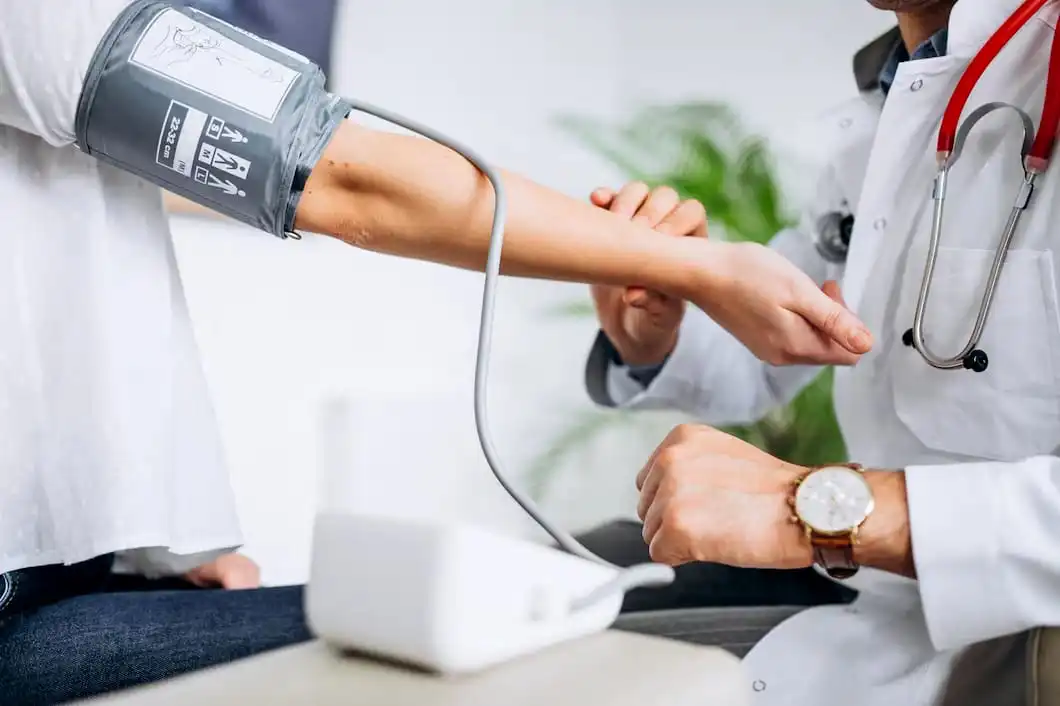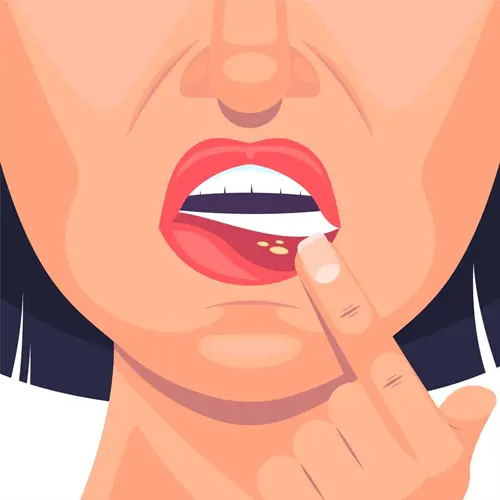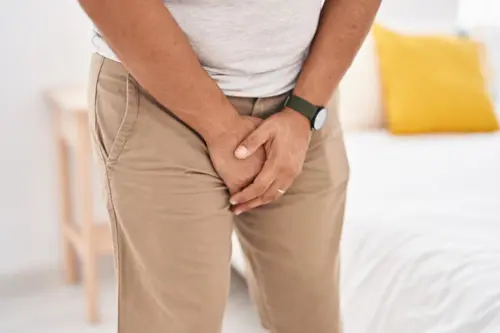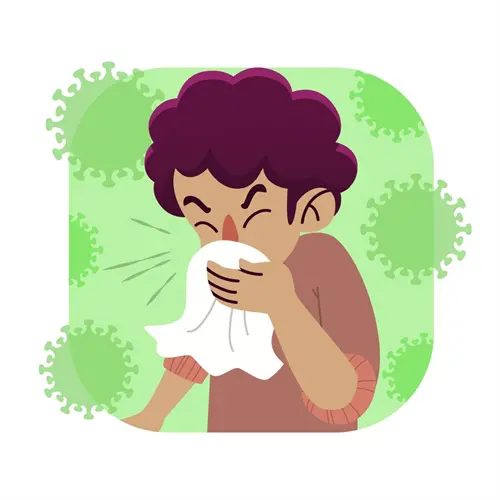Preventive Healthcare
Understanding Low Blood Pressure (Hypotension): Symptoms, Causes, and Treatment
3360 Views
0

What Is Low Blood Pressure?
Low blood pressure is blood pressure (BP) lower than 90/60 mm Hg. The medical term for low blood pressure is hypotension. It can occur due to a medical condition or even dehydration. Although the symptoms of low blood pressure may not be apparent, it can be a serious condition.
Understanding the cause behind low blood pressure will help your doctor prescribe an ideal treatment.
Let us understand more about low blood pressure, low BP symptoms, low BP causes and low BP treatment.
What Are the Types of Low Blood Pressure?
The types of low blood pressure are listed below:
- Orthostatic hypotension: This type of low blood pressure is a sudden drop in blood pressure when standing from a sitting position or after lying down. It may occur due to dehydration, pregnancy, long-term bed rest or medical conditions. Orthostatic hypotension is common among adults.
- Neurally mediated hypotension: This occurs after standing for long periods. Children and young adults often experience this type of low blood pressure.
- Post-prandial hypotension: This type of low blood pressure usually affects seniors having high blood pressure or Parkinson's disease. It occurs an hour or two after meals. Avoiding alcohol, staying well-hydrated and having low-carb meals will help lessen the symptoms.
- Multiple system atrophy with orthostatic hypotension: It is a rare disorder that affects the nervous system that controls blood pressure, breathing, heart rate and digestion. It affects people with high blood pressure, especially when lying down.
What Are the Symptoms of Low Blood Pressure?
Low BP symptoms include the following:
- Fainting
- Dizziness
- Nausea or vomiting
- Shallow breathing
- Tiredness
- Fatigue or weakness
- Blurry vision
- Confusion
- Trouble concentrating
Often, people do not experience any symptoms of low blood pressure and thus are unaware of the condition until they measure their blood pressure.
For people with low BP symptoms, it could be an underlying medical condition that causes their blood pressure to drop suddenly.
A sudden drop in blood pressure could indicate that certain areas in the body are not receiving enough blood flow. This condition can be dangerous. Seeking immediate medical help is crucial.
What Causes Low Blood Pressure?
Your blood pressure varies throughout the day. It rises upon waking up and is lowest at night.
Low blood pressure often occurs due to certain medical conditions or medications.
Medical conditions that cause low blood pressure are as follows:
- Heart conditions: Heart disease, heart failure, heart valve disease or heart attack can cause low blood pressure.
- Parkinson's disease: It is a disease that can affect how your nervous system controls blood pressure. Seniors with this disease may experience low blood pressure, especially after meals, as their digestive system uses more blood to digest the food.
- Low blood volume: Blood loss from injuries can cause low blood pressure.
- Pregnancy: Orthostatic hypotension often occurs during the first and second trimesters. Bleeding during pregnancy can also cause low blood pressure.
- Septicemia: When an infection in the body enters the bloodstream, it leads to septicemia or sepsis. This can cause a significant drop in blood pressure.
- Nutritional deficiencies: Iron, vitamin B12 and folate deficiency can cause low blood pressure as they affect the body's ability to make red blood cells.
- Dehydration: Lack of enough water in the body affects the blood volume. Intense physical workouts, fever, diarrhoea and vomiting can cause dehydration leading to low blood pressure.
Medications that can cause low blood pressure are listed below:
- Prescription medications: Medications for high blood pressure, heart failure, neurological conditions, erectile dysfunction, depression and other conditions may cause low blood pressure. Consulting your doctor for medications and taking them as directed is crucial.
- Diuretics: Water pills such as furosemide (Lasix) can cause a drop in blood pressure.
- Recreational drugs and alcohol: These can lower your blood pressure. Certain herbal supplements can also cause low blood pressure. Please consult your doctor before consuming herbal supplements or home remedies.
What Are the Complications of Low Blood Pressure?
Low blood pressure can cause the following complications:
- Heart problems
- Stroke
- Falls due to dizziness
- Fainting and weakness
How Is Low Blood Pressure Diagnosed?
Measuring your blood pressure will help your doctor in diagnosing low blood pressure. Furthermore, understanding the underlying conditions causing low blood pressure will help them prescribe a treatment plan.
Your doctor may advise blood tests to help detect the following conditions:
- Hypoglycemia or low blood sugar
- Hyperglycemia or high blood sugar
- Thyroid or hormone-related conditions
- Vitamin deficiencies
- Anaemia
- Pregnancy
If your doctor suspects heart or lung conditions causing low blood pressure, they may advise the following imaging tests:
- X-rays
- Computed Tomography (CT) scans
- Magnetic Resonance Imaging (MRI) scans
- Echocardiogram
To detect any specific problems with the heart, your doctor may advise the following diagnostic tests:
- Electrocardiogram (ECG) ECG Test
- Exercise Stress Test to study how well your heart pumps blood and if it is receiving adequate blood supply
- Tilt Table Test to diagnose orthostatic hypotension
What Are the Treatment Options for Low Blood Pressure?
Your doctor will prescribe a low BP treatment based on the underlying causes.
For example, if a particular medication may be causing a drop in your blood pressure, your doctor will change the dosage or advise you to stop taking it.
If you have vitamin or iron deficiency, your doctor may prescribe supplements and a change in diet.
Besides these, there are several ways to raise your blood pressure, which include the following:
- Increasing salt intake, but only after consulting your doctor
- Increasing water intake to tackle dehydration
- Wearing compression stockings to improve the blood flow from the legs to the heart
- Medications to treat orthostatic hypotension
Book ECG Test at Home
To Sum Up
The symptoms of low blood pressure need immediate medical attention. If you have any underlying medical conditions, inform your doctor. Please consult your family doctor if you feel dizzy, weak and tired. They will prescribe treatment for the conditions and help improve your blood pressure levels. Never take medications or herbal supplements without consulting your doctor. These could affect your blood pressure levels. Improve your diet and consume enough water to help raise your blood pressure and address any weakness or fatigue.
If your doctor orders blood tests to check for underlying health conditions, like diabetes or anaemia, please approach a certified pathology laboratory like Metropolis India. They guarantee accurate and timely reports that help you get prompt medical treatment for your condition.























 WhatsApp
WhatsApp